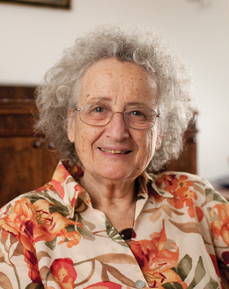 loading
loading
MilestonesMatching wits with melanoma Julie BrownResearch scientist Ruth Halaban won a lifetime achievement award for her work on skin cancer. View full imageIf medical science ever finds out how to cure the virulent cancer melanoma, it will be in large part thanks to a former plant expert. Federal funding decisions in the early 1970s led Ruth Halaban to put aside her studies of duckweed and coleus and study skin cancer instead. Applying genetic methods she had used in plants, she went on to make a series of pioneering discoveries about the biology of melanoma. Halaban was honored in November by the Society for Melanoma Research with its lifetime achievement award. Halaban got her first taste of botany in her native Israel, working in a vegetable garden on a kibbutz. She earned an MSc in genetics at the Weizmann Institute and a PhD in biology at Princeton, and is now a senior research scientist in the dermatology department. Halaban and her Yale colleagues were the first to clone the key pigment enzyme tyrosinase, and the first to describe the growth factors that influence melanoma cells. As director of a National Cancer Institute program called Yale SPORE in Skin Cancer, Halaban now studies skin cancer from many points of view—including that of the patient. She works closely with Yale clinicians who care for melanoma patients, sequencing the genes of cells to determine which mutations they carry. Since cells with different mutations respond differently to treatment, this information is not only crucial for clinical decision making, but also invaluable to Halaban as she works to decipher the behavior of melanomas. Halaban, who has lived in Davenport College as a resident fellow since 1992, hopes next to discover mutations that may predispose a person to melanoma or predict his or her response to treatment. She continues to do hands-on lab work, and says she thinks all the time about how to help the patients whose cells she is studying. “You are face-to-face with these people,” she says. “You look them in the eyes and ask yourself, what can you do for them? I love it.”
The comment period has expired.
|
|